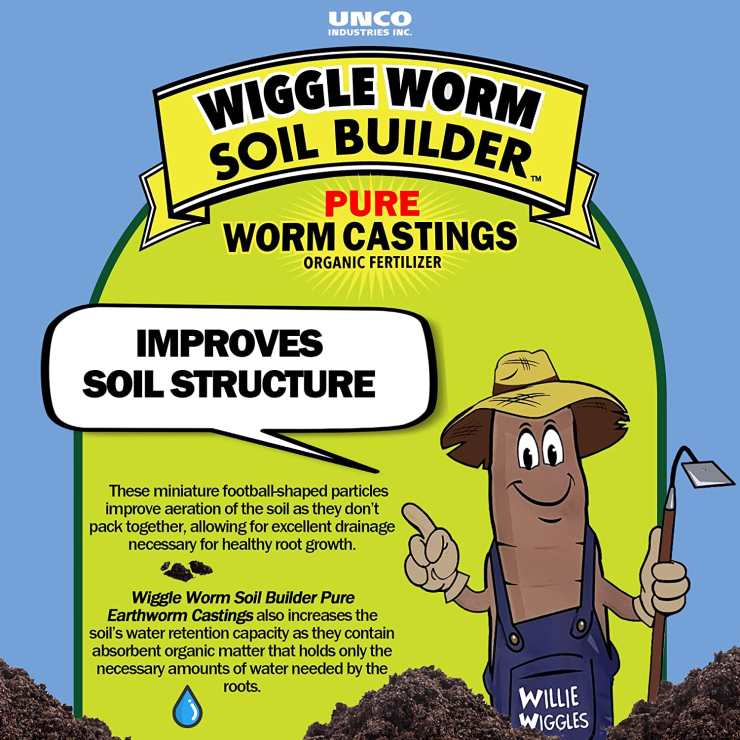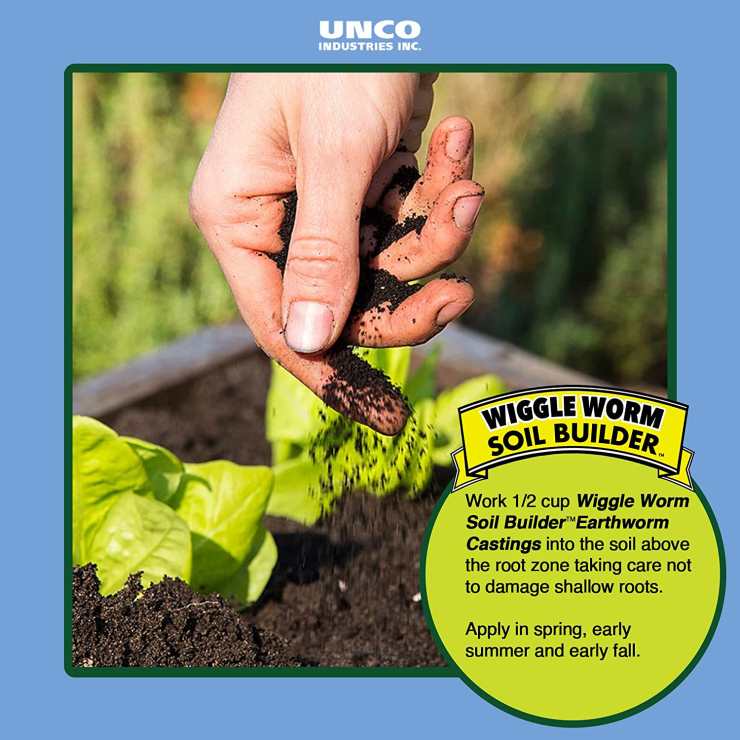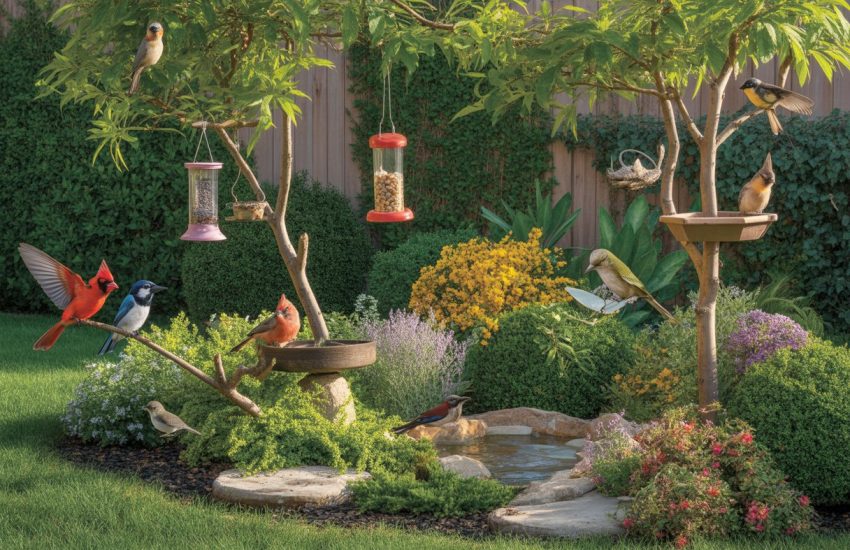Wiggle Worm Castings Organic Fertilizer Review
Last updated: February 6, 2026
Table of Contents
Introduction
The excrement that decomposes in worms’ digestive system and mixes with the soil is called Worm Manure or Vermicompost. Worm casting is an entirely organic process. This compost contains beneficial microorganisms, mycorrhizal fungi, nitrogen, potassium, calcium, enzymes, folic acid, and amino acids. In this way, it directly contributes to the high organic structure of the soil and allows the soil to grow natural agricultural products in every respect.
This fertilizer is an organic compound obtained from animal feces. However, raw animal manure must undergo some processes to be used as fertilizer. If the animal feces that need to be decomposed after the fermentation process are given directly to the plants, achieving the expected results won’t be easy. This compost fulfills this decomposition need of animal manure and is known to provide a serious agricultural benefit.
Features of Wiggle Worm Castings Organic Fertilizer
4.7/5

- WiggleWorm composts consume nutrients defined as worm food and animal feces and produce processed high-quality fertilizers.
- This product, which we know as Worm Fertilizer, is digested with special enzymes produced by wiggle worms and is very effective in terms of valuable components.
- In addition to the nutrition and development of plants, it is among the scientific data that this processed wiggle worm compost also increases the resistance against plant diseases.
- Just as organic nutrition means much to human life, plants need to grow with organic nutrients. Therefore, it is essential to use this compost.
- Thanks to its contents such as fulvic acid, humic acid, enzymes, microorganisms, bacteria, fungi, nitrogen, potassium, calcium, and magnesium inside the wiggle worm compost, it directly contributes to the cultivation of organic agricultural products in the soil.
Pros of the Wiggle Worm Castings Organic Fertilizer
- Wiggle worm castings do not burn the crop. They are easier to use than other fertilizers. Because of this, a lot of gardeners prefer this compost.
- The water retention rate of these fertilizers is relatively high. These castings can hold most of their weight in water. Soil enriched with vermicompost is less likely to lose moisture.
- Soil consistency and make-up are improved. Your soil will get better yearly because it is dense in organic matter. Castings do not remove the vitality of the soil as chemical fertilizers can. Instead, they build up the soil and continually improve it over time.
- Some pests hate wiggle worms’ droppings. In addition, aphids, spider mites, scale insects, mites, and whiteflies harm the solid. By adding castings to the surface of your soil, you can reduce the population of these pests.
- These fertilizers are slow-release fertilizers. For this reason, it helps the plants be fed by spreading the nutrients they need over a long period.
Cons of the Wiggle Worm Castings Organic Fertilizer
- Casting takes some time. It can take months to shed, unlike hot composting, which can be quick if your pile is warm enough. After all, wiggle worms are pretty small creatures. While a wiggle worm can eat up to half its body weight with food each day, you will need many worms to produce large numbers of casts.
- Root growth is not stimulated by vermicompost. However, some gardeners claim that the roots of plants are larger due to casting. This may benefit healthy soil and good fertilizers, but not directly from wiggle worm casting.
- These wiggle worm compost are sold at very high prices because they greatly benefit the soil. So it is cheaper to grow your worms and make your organic compost.
- You can use a lot of casting. Like other fertilizers, worm casting is a fertilizer. It adds valuable organic matter to the soil. But like other animal manures, too much can be a bad thing. Use 25% or less fertilizer in your soil mixes, even with worm castings. You can add more later.
What Are The Types and Usage of Wiggle Worm Casting?
4.7/5

There are two types of wiggle worm casting. There are granules, namely solid ones, and fluids, namely liquids.
1) Solid Wiggle Worm and Usage Areas
Solid (granular) wiggle worm casting is generally used by spreading or placing it in a pit during seedling. This compost is also effective in rotting weeds.
2) Liquid Wiggle Worm and Usage Areas
The Red California Worm fertilizer is created by bringing its liquid state with the help of industrial machinery. It is also completely organic. Spraying or dripping methods are preferred and applied to the soil where agricultural products will grow.
What is the Difference between Worm Casting from Chemical Fertilizers?
Wiggle worm compost contributes directly to balancing the soil’s pH value. In contrast, chemical fertilizers almost work for the complete deterioration of the pH value of the soil.
In terms of being rich in humus, it increases the access area of water to the soil. However, such a situation is certainly not the case with chemical fertilizers.
Since it is 100% compost, it has a natural unique taste and smell, while agricultural products grown with chemical fertilizers do not have both taste and smell. In addition, because they are grown with hormones, they also trigger cancer risk.
As it can be understood from all these comparisons, it is possible to say that this compost has superior properties to animal manure obtained by chemical means.
While there are entirely natural phosphate, potassium, magnesium, and calcium in wiggle worm compost, chemical elements such as urea, nitrogen, and DAP nitrogen are included in chemical fertilizers.
Conclusion
Worm castings compost brings significant benefits to the soil. This compost protects the soil from diseases, increases plant yields, and keeps some insects away from the soil. Of course, like any fertilizer, it has some disadvantages. But when used correctly, wiggle worm compost is a beneficial organic fertilizer for many people interested in agriculture.
You may also be interested in:


